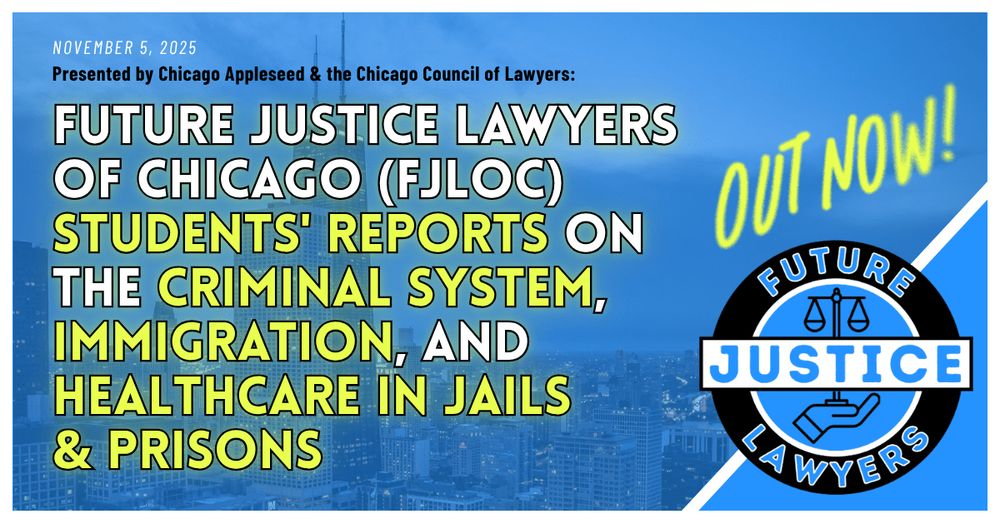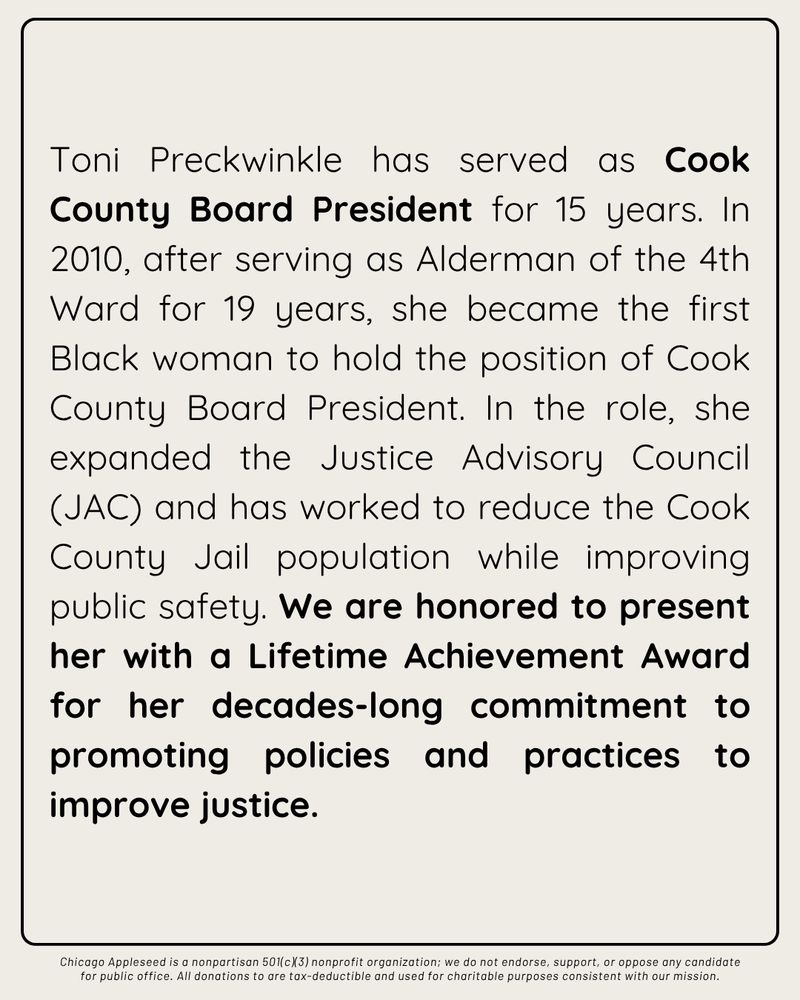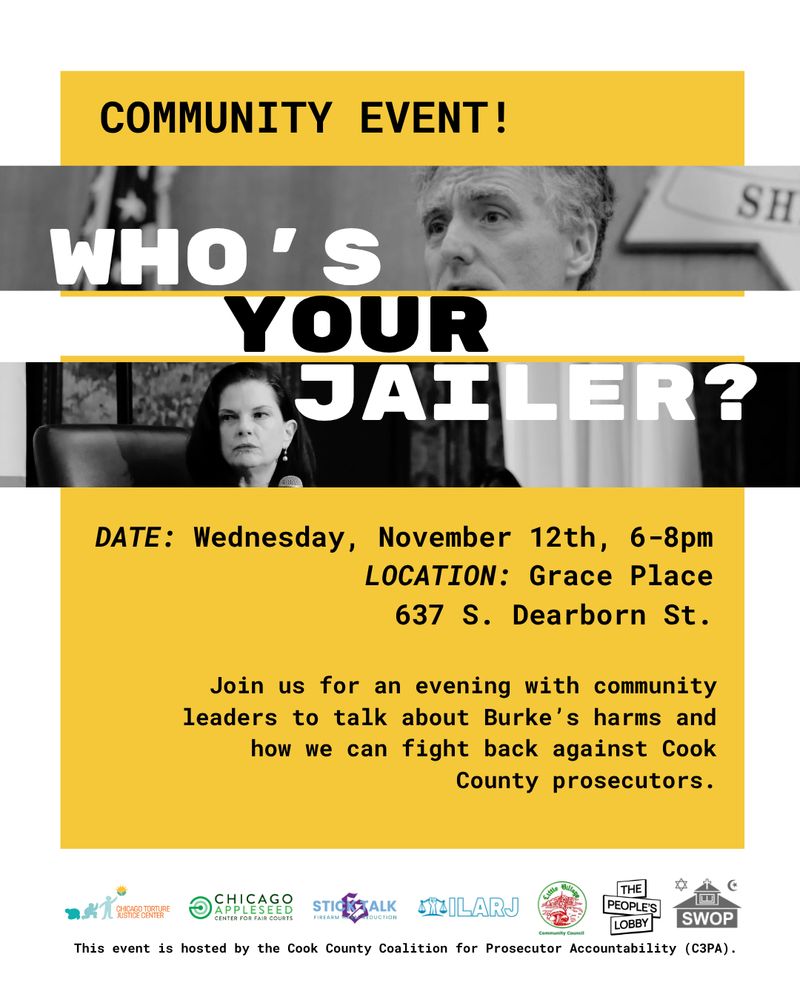




Learn more on the Chicago Reporter's coverage at buff.ly/43pW3qq
Learn more on the Chicago Reporter's coverage at buff.ly/43pW3qq


Turn your values into action by making a donation at bit.ly/25_GivingTue... today.

Turn your values into action by making a donation at bit.ly/25_GivingTue... today.

Learn about the harmful policies that State's Attorney Burke has put in place & how communities are fighting back on 12/10 at Grace Place(637 S Dearborn)!
Register at: bit.ly/SATeach-in

Learn about the harmful policies that State's Attorney Burke has put in place & how communities are fighting back on 12/10 at Grace Place(637 S Dearborn)!
Register at: bit.ly/SATeach-in
This policy ignores decades of police misconduct, while signaling that Burke is not committed to preventing, combatting, or protecting people from misconduct.
endmoneybond.org/states-attor...

This policy ignores decades of police misconduct, while signaling that Burke is not committed to preventing, combatting, or protecting people from misconduct.
endmoneybond.org/states-attor...

Read it here: southsideweekly.com/getting-your...



Read it here: southsideweekly.com/getting-your...
Food will be provided!
🔗 Register now: bit.ly/TrafficStopsTownhall

Food will be provided!
🔗 Register now: bit.ly/TrafficStopsTownhall


Read the reports here: www.chicagoappleseed.org/2025/11/05/2...

Read the reports here: www.chicagoappleseed.org/2025/11/05/2...



Check it out: www.nytimes.com/2025/03/17/u...

Check it out: www.nytimes.com/2025/03/17/u...

But the conflict of interest is clear...and we have concerns.
📌 Learn more: www.chicagoappleseed.org/2025/09/23/i...

But the conflict of interest is clear...and we have concerns.
📌 Learn more: www.chicagoappleseed.org/2025/09/23/i...
🌱 Get your tickets at chicagoappleseed.org/events

🌱 Get your tickets at chicagoappleseed.org/events
If you're interested or know someone who is, fill out the application at 🔗chicagoappleseed.org/apply.


If you're interested or know someone who is, fill out the application at 🔗chicagoappleseed.org/apply.
www.chicagoappleseed.org/2025/08/27/n...
via @chicagoappleseed.org
#housing+ #urbanism+ #urbanism

www.chicagoappleseed.org/2025/08/27/n...
via @chicagoappleseed.org
#housing+ #urbanism+ #urbanism
Get your tickets here: bit.ly/karaokeforadvocacy

Get your tickets here: bit.ly/karaokeforadvocacy
Read the article 👉

Read the article 👉
📌 www.chicagoappleseed.org/2024/02/22/r...

📌 www.chicagoappleseed.org/2024/02/22/r...

